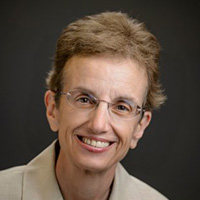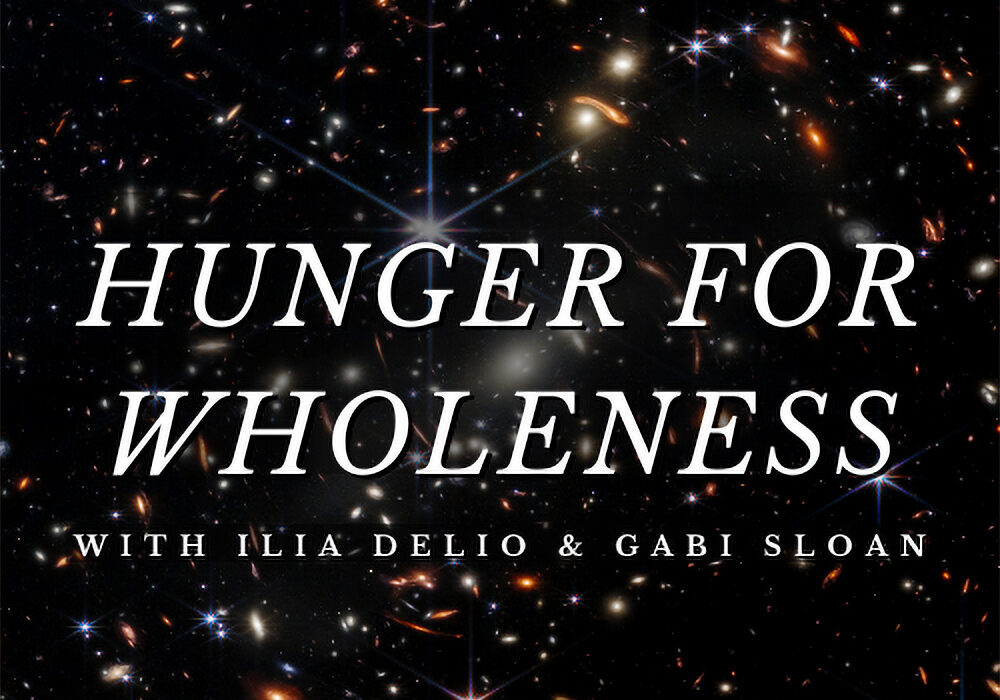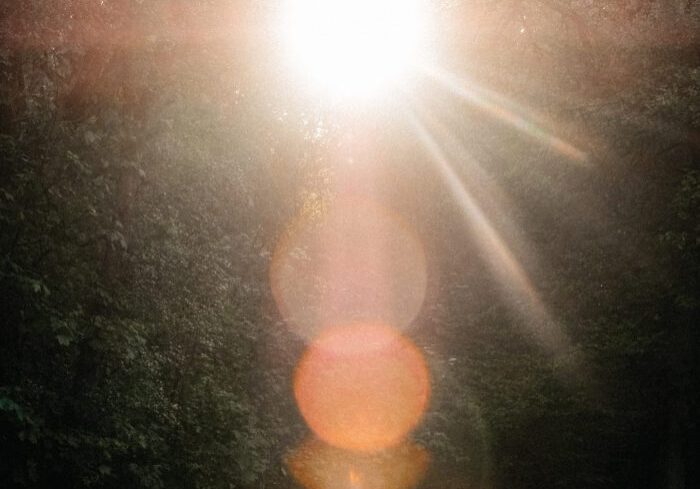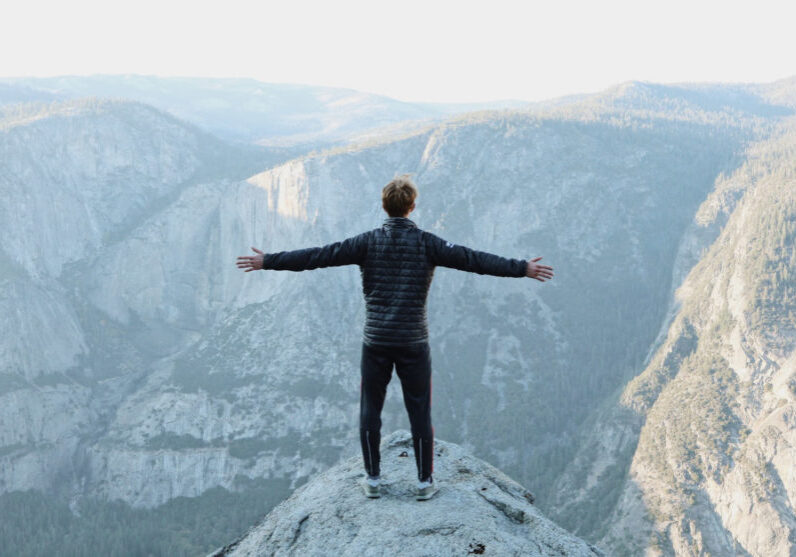Fire Burns, And So Does Love
Q: With the recent horrendous bushfires in Australia and the ongoing drought, climate change and the influence of humans is on the minds of many people but appears to be missing from the actions of our leaders in government. There is a great need for humans to connect with the natural world seeing God in everything. How to get this shift in consciousness is the big question. How do we speak with all the people about this incarnational spirituality so they respond in contemplative ways?”
 Ilia: These days the world seems like a fragile egg being stepped on by a giant elephant called “power.” For every glimpse of hope that the egg will not be crushed, there is a new show of power and a feeling of defeat. Hence, we live today between power and defeat and, as a result, there is a lot of mental and emotional fatigue. Greta Thunberg, the young prophetess of climate change, recently spoke at the economic forum in Davos Switzerland saying that, with regard to carbon emissions, nothing has changed. The recent devastating fires in Australia and California are signs that global warming can induce dramatic consequences, and yet even these destructive fires are swept off the map of consumer culture as another algorithm crossing our computer screens. The typical Facebook response is, “prayers needed.” In the face of unbridled and corrupt political power, where oligarchs and money are interchangeable, the hoi polloi has become the fragile shell of corporate greed and blind power. Our sense of freedom is being crushed by a rising feeling of despair. It is no wonder depression and suicide are on the rise for we are, as Sheri Turkle wrote, alone together.
Ilia: These days the world seems like a fragile egg being stepped on by a giant elephant called “power.” For every glimpse of hope that the egg will not be crushed, there is a new show of power and a feeling of defeat. Hence, we live today between power and defeat and, as a result, there is a lot of mental and emotional fatigue. Greta Thunberg, the young prophetess of climate change, recently spoke at the economic forum in Davos Switzerland saying that, with regard to carbon emissions, nothing has changed. The recent devastating fires in Australia and California are signs that global warming can induce dramatic consequences, and yet even these destructive fires are swept off the map of consumer culture as another algorithm crossing our computer screens. The typical Facebook response is, “prayers needed.” In the face of unbridled and corrupt political power, where oligarchs and money are interchangeable, the hoi polloi has become the fragile shell of corporate greed and blind power. Our sense of freedom is being crushed by a rising feeling of despair. It is no wonder depression and suicide are on the rise for we are, as Sheri Turkle wrote, alone together.
And yet, if I ascend in an airplane to thirty thousand feet, I get a very different view of things than what Time magazine or the Economist reports. Pulling away and rising above the clamor of competing forces, I see a majestic beauty of rolling fields and mountains, as I sail through clouds at lightning speed. It is truly amazing that the human person can imagine, create and build an airplane that transports and transcends and yet, at the same time, the human person can lie, cheat, corrupt, maim and destroy. What are we humans anyway? This is the great question of every century. In the past, religions told us what we were , creatures in the image of God, noble centers of creation endowed with reason and immortal souls; today technology tries to claim that position, indicating that we are downloadable software in replaceable hardware. Technology has our attention but religion is what we long for—not the old stuff but a new religious spirit, a harnessing of our energies towards ultimate meaning that binds us to ultimate life, living with purpose and not just for ourselves, but for the whole cosmic life which we implicitly know ourselves to be belong to.
For millions of years biological life fashioned for itself different tools and arrangements that enabled the flourishing of life, for example, the construction of clam shells to protect oysters, or the burrowing of fox holes to shelter and protect or the dams constructed by beavers, and a myriad of other ‘technologies’ to safeguard and optimize biological life. Many people think that biology and technology are opposites; the former being “natural” while the other is “man made.” Nothing could be further from the truth. Technology is not a human invention; it is an essential aspect of nature by which life seeks the means and tools to orient itself toward more life. Yes, humans are clever but so too is non-human nature, or rather, we are clever because nature is clever. Given our long biological history, it is fair to say that nature itself may be more clever than humans. We boast of our superior intelligence, but our higher cognitive skills come at a high price. We can blindly choose against nature and choosing against nature can create a true “artificial,” a construct that has little to do with nature. Today we are experiencing artificial religion, artificial politics and artificial socialization—all these systems function outside the principles of nature. These systems are no longer consonant with nature, as science now describes it. These artificial systems are more artificial than artificial intelligence (AI), which really is not artificial at all but an extension of our biological intelligence. What is interesting is why we are building AI in the first place. To be human is to imagine what does not exist and to create what we imagine. AI expresses our collective imagination; it is a mirror of our deepest desires and what we desire is to get out of “here” and be “there.” “There” is anywhere but “here.” This sounds very much like Plato’s cave and, in truth, we have not strayed too far from the Greek philosopher. Maybe it is because we want to be anywhere but “here” that we have neglected the earth.
Yet nature itself does not dream. It deals with reality and presses on. In a recent article on the fires in the Australia one survivor said that his backyard was a wasteland of dead wood, charred trees stripped bare in a graveyard of ashes. However, he said, he went out one day to look more closely at the dead wood and found that some of the trees had tiny buds of new life. This sounds like a biblical story and yet it was reported in Time magazine. Life presses through dead wood and stretches toward new life. Theologians want to jump on this right away and say, “new buds formed because God is in the tree.” And yet such a statement really undermines the tree, as if–well–maybe it only appeared to burn up or God let it burn so that God could save it. The more I think how out-of-touch theology is with nature, the more I am on the side of the dead tree and the ability of the dead tree to be dead and alive at the same time.
The truth is, matter is really strange stuff. Einstein’s theory of special relativity took a sledgehammer to Aristotle and his disciples; matter is not substance and energy is not a relation. The fact that matter and energy are interconvertible puts the stuff of reality on a whole new level of knowledge whereby experience and observation play a fundamental role. David Bohm’s implicate order, a theory Einstein was not too fond of, comes close to a 20th century Neoplatonic revival whereby the One is in the many and yet transcends the many or, as Alfred North Whitehead wrote, the many become one and are increased by one.
Whereas theologians should probably throw Einstein a party every year or celebrate Herbert Minkowski as the saint of quantum physics, theologians are like aliens on earth when it comes to modern science. They might feel better however if they could realize that scientists are themselves baffled and confused by the implications of quantum physics. The well-worn scientific method simply does not hold up to nature’s weirdness. Philosophers are pointing out that consciousness is now a problem because without consciousness there is simply no science, and yet no one really knows what consciousness is. The inability of quantum reality to be reduced to quantifiable measurements of ontological certainty is problematic. As a result, there are conflicting schools of thought and science spills over into philosophy, and philosophy cherry picks the scientific data to create new theories, and theology—well who knows where the theologians are–because if they showed up to this chaotic conversation there might be some resolve between science and philosophy. But alas very few theologians have been noted at this party and those who do show up are deemed heretics or are simply ignored.
Given this state of affairs among the key pillars of human knowledge, it is no wonder that oligarchs and demagogues have rushed in to fill the gaps created by academics wrapped up in their highly sophisticated paradigms. To put this another way, the university is no longer a help but a hindrance to our entropic world. And yet, reflecting on this chaos from thirty thousand feet, there is something else going on, something deeper and more hopeful. Chaos theory, formulated by the meteorologist Edward Lorenz back in the 1960s, basically states that in open systems, a spontaneous basic of attraction can emerge and pull a system into a new pattern of order over time. Biological evolution gives witness to life as a series of interweaving open systems. Things break down and die but death releases nutrients and resources for new life. Life is open to more life. The key to chaos theory is to focus not so much on the breakdown of order but on the strange attractor, the basin of attraction within the system yet different from the system. Paying close attention to the new basin of attraction leads to recognition of a fractal, a new pattern of order emerging from the decaying system. Fractals repeat themselves over time until a new pattern appears visible. Life celebrates itself with novel order, which leads me to ask, what are the strange attractors in our midst?
With all our energy spent on political survival and global warming, what are we missing? From thirty thousand feet, one of the most remarkable attractors is the shrinking of the globe due to information networks and global travel. We are more and more one earth community. Sure we have our differences in culture, language, politics, etc. but underneath these differences there is a consciousness of belonging to the whole planet, in a sense, realizing the words David Bohm wrote in his book Implicate Order, “as human beings and societies we seem separate but in our roots we belong to the same cosmic whole and share in the same cosmic process.” Younger generations, especially generation Z, know this wholeness intuitively and there is deep concern for the welfare of the planet and the poor. In my view, this new planetary consciousness flows from the way information and cybernetics have reorganized human personhood. The youth are born into a networked world and think across lines of relationship; they are born for a new wholeness and, in a sense, a new catholicity.
With the new insights from systems biology, quantum physics and consciousness studies, and the emerging philosophies grappling with the new data, the one discipline needed to bring this budding new fractal into a meaningful framework of purpose and aim, is theology. It is simply not enough to talk about finding God in the stars or the cosmic Christ or that one God creates one creation and we are all brothers and sisters. These are all abstractions based on a confluence of scripture, medieval theology and some philosophical ideas thanks to Kant, Hegel and Heidegger. Despite the many efforts to rework ethics and spirituality for a world of cultural, religious and social pluralism such efforts, without dealing with the stuff of matter itself, is untethered and flimsy; intellectual teasers in need of a theological vision. They may do some good, but they cannot bring about the long overdue shift needed for a world in evolution; that is, the overdue God shift. Fundamental theology (even the name itself connotes another era) must come to the party where science and philosophy are sitting around the table. Some twentieth century theologians, like Karl Rahner, understood this need but did not sufficiently engage the sciences.
Most theologians want to keep dead thinkers alive out of reverential nostalgia because there is no real grasp of evolution. But in evolution nothing is really ever lost; rather things are subsumed or taken up into the new so that the seeds of the old give birth to the new and become new themselves in the process. Evolution is not linear nor does it follow Pythagorean geometry. Rather, it is a complex process of open dynamical systems in which quantum physics, information and cybernetics undergird interdependent systems. Most theologians do not know what to do with evolution, so they ignore it. In his own way, Pope Francis understands the significance of the sciences for theology. Anyone who has faith in God without faith in the world and, in particular, the world of matter, does not have faith in a living God.
The ancients knew that if God is Creator then creation reflects God. Yet we have done our best, especially in institutional religion, to skirt around the truth of creation’s mirror. And this mirror is not a metaphor for something stable and fixed. A mirror reflects what is visible and the mirror of creation is a mirror of quantum strangeness, or better yet, quantum mystery; a mirror of consciousness and matter completely intertwined. Without really looking into the mirror of reality, theologians are giving futurists and philosophers free reign to define life.
Sure we can meditate and pray and refocus our energies but without engaging the mysterious stuff of life in all its weirdness, our prayers are nothing more than self-centered concerns and can redound on a hyper-individualism. One must lose one’s life to find life, Jesus said. An open systems world is a world of losses and gains, spontaneity and creativity, appearances and disappearances. It is precisely the weirdness of nature that undergirds its radical interconnectivity. Unless we are at home in a world of ever-moving relationships, of superimposed possibilities, of conscious matter, then we are not at home in a world with a future, because the future itself is the sign of a strange and unpredictable reality.
We are and should be concerned about global warming and the fires destroying homes and fields. But we should more concerned about the lack of fire in the Church, a fire needed to update the core truths of theology. “I have come to cast fire on earth,” Jesus said, “and how I wish it were already ablaze” (Lk 12:49). We have lost the passion of Jesus to change boundaries and challenge established laws and doctrines. We have lost the courage to overturn the tables in the Temple, to stand before bishops and priests with assurance that God is doing new things; that women can fully participate in the Church as priests and deacons and God won’t mind one bit. We have lost the passion to be creative and imaginative, to envision an entirely new theology, a new Church, a new collaboration of religions in the world. We stick with the old, as if religion is immutable and the great exception to nature. Yet what science tells us is that nature has the capacity to do new things–and God is perfectly at home with the strange relationships of quantum reality and evolution.
After 13.8 billion years of cosmic life and 4.2 billion years of earth life, nature has shown itself resilient in the face of destruction. This resilience bears witness to the hope that lies within. Theology should give voice to this hope and not stifle it by outdated doctrines and myths. There is a desperate need for a new understanding of God who is known by many names. Perhaps the name Love best describes this insatiable desire of the human heart and the heart of nature itself. Teilhard de Chardin said that science can only bring us so far but in the end, it will disappoint us. It is Love that meets the needs of the human heart and binds together in a unity that grows. In Teilhard’s view there is science, philosophy and Love, and the greatest of these is Love.
 View print-friendly version
View print-friendly version
15 Comments
Related Posts

Hunger for Wholeness Podcast Launches!
Story matters. Our lives are shaped around immersive, powerful stories that thrive at the heart of our religious traditions, scientific inquiries, and cultural landscapes. All stories – big and small…


It’s wonderful reading articles that are way over my head. I used to strive for greater understanding, but now I simply enjoy the mystery, pictures and feelings that are painted in my right brain as I put the words down and go for a long walk in nature.
Thank you for the reflection. Please could you give details about the image you’ve used – whose painting is it? Many thanks, Frances Tilly. Sydney, Australia
Frances, This is a public domain image of an aboriginal painting. It was not attributed to a specific author.
I am stunned that there are no more comments than this. This article is an amazing weaving of all that I have thought and believed but could not have laid out so clearly and completely. I am with you 100% in your understanding and assessment of what’s what, what’s not seen, and what’s missing.
But, what now? I am in a situation and a place that is ideal for making an impact but I’m going at this alone. I am a 64 year old grad student in southern US university that is shackled between athletic fame/technological achievement and its dark historical beginnings. I can proceed on my own (my masters program involves writing and visual rhetorics) but I wouldn’t mind some insights or suggestions.
Contact me directly if you are interested. I would welcome it.
Hi Kitsy, I’d like to think that I am also a “What now?” type. Unfortunately, the lack of comments, in my opinion, is due to the level of sophistication with which Ilia Delio writes. Out of 1000 people, how many do you think would have a working knowledge of 10% of the ideas and concepts discussed? My answer to “What now?” is more prayer and meditation. As Meister Eckhart said, “Spirituality has more to do with subtraction than it does with addition.”
A spirituality in tune with the mystery of God and Nature; inspiration for our dark and chaotic times, With gratitude and appreciation, Elizabeth Stamp
As I sat by my microscope reading this post before starting my work for the day, I found it resonating more and more in my mind-heart how critically important it is for theology to be engaged with science, science to be engaged with theology, and for contemplative engagement to occur across the many realms of human wisdom. And more so, for humans to compassionately engage with one another and with the evolving, creative and resilient universe we are inherently are a part of. I don’t think this will happen from a stance of fear that we have often operated from as a species (as understandable as this is given our evolutionary history). From the socio-economic constructs of nation states to the competitive culture of academia, we create protective barriers that actually only serve to disconnect us from one another and the world around. I hope and pray for a New Theology, a New Wisdom, that will being about Hope as the stance we take to engage with each other and the universe. Thank you, Ilia, for your call for courage, resiliency, hope and love.
Peace.
thank you for cheering us on, those who have left the church because of its irrelevance and seek spirituality in dancing, feeding birds, and generally feeling sad about the world.
Thank you so much, Ilia Delio, for this prophetic statement of what the larger view is and of where so many of us are…and of what the deeper truth is…at least I find myself believing the truth of what you say here, but flagging in the face of so much resistance in the “powers that Be” in the Church and Society. I want to live from Hope that will give me the courage not to give up…. and to discern effective action from idealism….thank you for your journey!
I am moved by the clarity and clarion call of your reflection. Thank you Ilia. I cannot tell you how important I have also come to believe that this work is – this ‘envisioning and doing of a new theology in multiple fiery and alive conversations and continual testing out with current reality’ – it is such a burgeoning need’. And, as you say, we must do so from a place of ‘at homeness’ in this world of ever-moving relationships, conscious matter and radical openness to an unknowable, unpredictable future.
Oh my! This is quite exceptional and an inspiring robust vision and challenge. We do need updated origin stories that can hold, make sense of and robust enough to reimagine a thoughtful spirituality that inspires a soulful, deeply integrated praxis of being human.
So good! Thanks for posting.
I totally loved reading, “We have lost the passion of Jesus to change boundaries and challenge established laws and doctrines.” I want to find that passion in my heart and soul. I know it is there. I want to live that passion.
Part of the reason we have lost the passion of Jesus to change boundaries and challenge established laws and doctrines” is because we continue to elevate Jesus to be a god which desires to be above us in every way possible. The whole concept of God desiring praise and obedience supports such an image of God. What if Jesus came to know that God was bigger than this cultic hierarchic image we continue to suffer from? What if Jesus was trying to share this consciousness of a God who calls but never forces us…a god which believes in us unconditionally…a god desiring genuine “Separate YET One-with non-hierarchical relationship” with us…all of which is the Way of Love. WHAT IF? https://whomegod.wordpress.com/